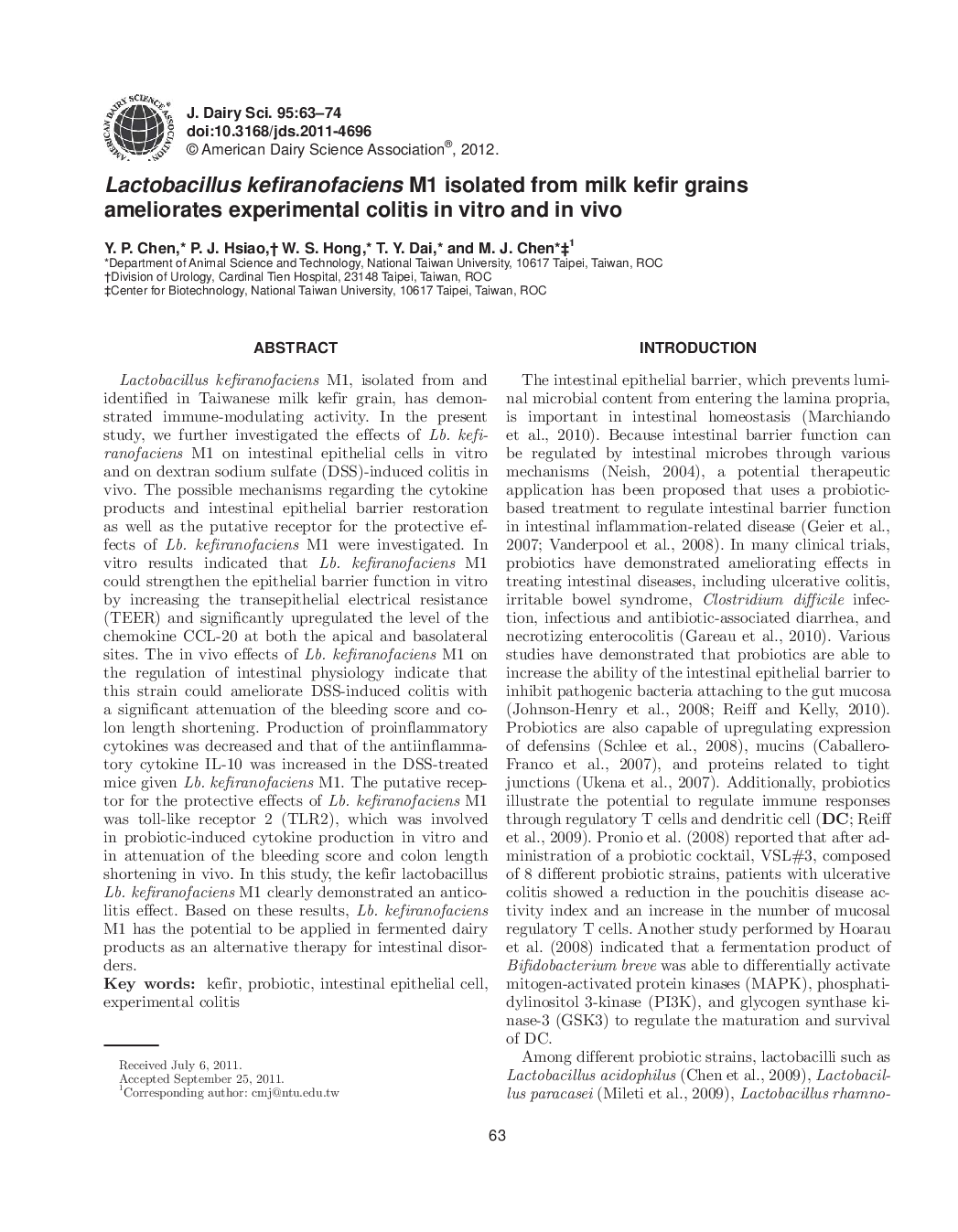| Article ID | Journal | Published Year | Pages | File Type |
|---|---|---|---|---|
| 10977106 | Journal of Dairy Science | 2012 | 12 Pages |
Abstract
Lactobacillus kefiranofaciens M1, isolated from and identified in Taiwanese milk kefir grain, has demonstrated immune-modulating activity. In the present study, we further investigated the effects of Lb. kefiranofaciens M1 on intestinal epithelial cells in vitro and on dextran sodium sulfate (DSS)-induced colitis in vivo. The possible mechanisms regarding the cytokine products and intestinal epithelial barrier restoration as well as the putative receptor for the protective effects of Lb. kefiranofaciens M1 were investigated. In vitro results indicated that Lb. kefiranofaciens M1 could strengthen the epithelial barrier function in vitro by increasing the transepithelial electrical resistance (TEER) and significantly upregulated the level of the chemokine CCL-20 at both the apical and basolateral sites. The in vivo effects of Lb. kefiranofaciens M1 on the regulation of intestinal physiology indicate that this strain could ameliorate DSS-induced colitis with a significant attenuation of the bleeding score and colon length shortening. Production of proinflammatory cytokines was decreased and that of the antiinflammatory cytokine IL-10 was increased in the DSS-treated mice given Lb. kefiranofaciens M1. The putative receptor for the protective effects of Lb. kefiranofaciens M1 was toll-like receptor 2 (TLR2), which was involved in probiotic-induced cytokine production in vitro and in attenuation of the bleeding score and colon length shortening in vivo. In this study, the kefir lactobacillus Lb. kefiranofaciens M1 clearly demonstrated an anticolitis effect. Based on these results, Lb. kefiranofaciens M1 has the potential to be applied in fermented dairy products as an alternative therapy for intestinal disorders.
Related Topics
Life Sciences
Agricultural and Biological Sciences
Animal Science and Zoology
Authors
Y.P. Chen, P.J. Hsiao, W.S. Hong, T.Y. Dai, M.J. Chen,
